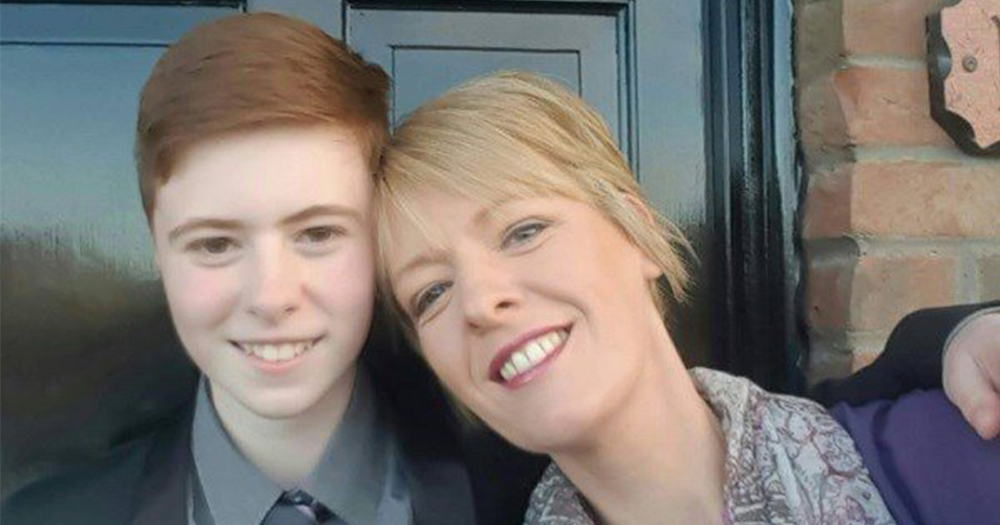Dylan Donohue has won ‘2nd place intermediate individual’ award for his project at this year’s BT Young Scientist awards.
The 16-year-old’s project asks “Why do Trans People have some of the highest suicide rates in the world?”.
The transition year student from Adamstown Community College in Lucan has been out as trans since he was 13.
Well done and good luck to our students participating in the @BTYSTE this week. Dhanya and Mary's project asks 'Is your mobile making you less mobile?' while Dylan has investigated 'How being Trans can affect your mental health' pic.twitter.com/Esry26zTqn
— adamstowncc (@adamstowncc) January 11, 2018
The key finding of this project was the need for earlier and more thorough education in schools. This would help increase awareness for trans and LGBT+ students from an earlier age.
Dylan said he has had a lot of interest in this project which he is delighted about as the key aim of his study was to increase awareness around mental health challenges experienced by the trans community.
“I want to bring awareness to how difficult a trans person’s life can be and how acceptance and respect and support from other people can make their life so much easier,” he said. Dylan received 270 responses to a survey he devised for the project.
The organisers of this years Young Scientist Competition have noted a high level of interest from this years students in tackling social challenges.
“An unusually high number of the 2018 exhibition entries investigate burning social issues such as homelessness, transgender rights and mental health,” the organisers noted.
“Whilst subjects such as these are not uncommon for the behavioural science category, this year the trend is visible in the more traditional categories such as biological and ecological science and chemical, physical and mathematical science, highlighting just how much these topics are impacting on students’ lives.”
Challenges Facing Trans Youth
Vanessa Lacey of TENI says one of the challenges facing Irish transgender children is “getting access to healthcare services”.
In an article on the Irish Examiner she remarks:
“The biggest problem is access but there isn’t a proper system either. No guidelines, no protocol, it’s ad hoc and this adds to the distress. From what we see, only about half of Child Adolescent and Mental Health Services (CAMHS) work with trans’ children. If there isn’t the threat of suicide, they won’t see them as suicidal young people are prioritised. In this case the only solution is private care. But what if a parent can’t afford to? ”
This key issue has prompted a student protest on Leinster House this Saturday, 20th January.
Another challenge is the scope of the current Gender Recognition Act. It does not include protections for those under the age of 16 and has limitations for those under 18. It also does not include any legislation for non-binary people to have their gender recognised.
This legislation is currently under review and everyone, particularly young people are being asked to make a submission with their recommendations to the review committee.
https://www.facebook.com/issu4u/videos/vb.135824879854137/1162476260522322/?type=2&theater
Details on how to do this can be found here.
© 2018 GCN (Gay Community News). All rights reserved.
